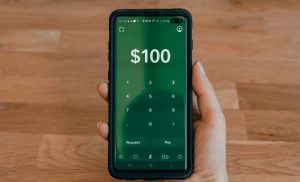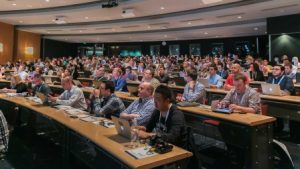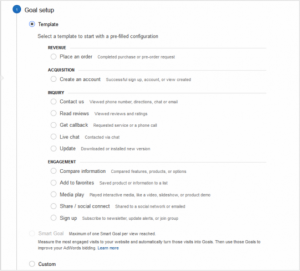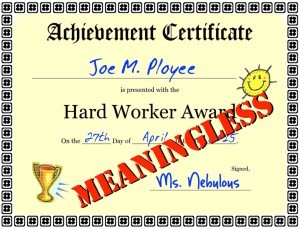
When it comes to starting any business, crafting a successful business plan is often the first step –– one which causes many to reconsider, or worse, quit. This is especially true for those looking to launch sustainable product lines, a business model that typically charges higher prices in return for offering customers moral assurance. With competition from Amazon, Walmart and soon-to-be-seen Jet.com –– which all advertise the lowest of low prices –– deciding to stay true to ethical roots and choosing sustainability over competitive pricing can be tough.
For retailers who aspire to jump into the world of sustainable design, you may quickly find yourself facing a unique set of challenges. How do you find the right manufacturer to partner with? How do you know if the materials are 100% sustainably made? How do you stand out when it seems that every day a new business claims to be ethically-sourced? Before long, you begin to question how much weight true sustainability holds in the retail world
For Shannon Whitehead, founder of Factory45, the challenge of launching an ethically and sustainably made clothing business is no unfamiliar experience. After a year and a half of struggling through rookie financial decisions, she and her partner successfully launched their own business –– one which thrived in the fashion industry. Since then, she’s left the company to her co-founder, choosing instead to pursue a career as a consultant, providing business owners with the very tools she wished she had when she launched her brand.
This is where Factory45 comes in — a four-month online accelerator program for both aspiring business owners who want to start their own sustainable clothing line or already existing owners looking to expand their line. Helping big dreamers from idea to product launch, Whitehead stays by her clients’ side throughout the initial ups and downs of sustainable business life.
In all, since launching Factory45 in 2014, Whitehead has completed her program with 10 retailers. Today, she advises 33 companies of various experience levels through video modules, group phone calls, peer mentorship and personalized expert support.
“A lot of people just have only an idea, nothing more,” Whitehead said. “Several have existing businesses, either through a [multichannel platform] or an ecommerce platform. They join Factory45 to grow their sales, learn more about effectively selling online, expand their product line or all of the above.
No matter what stage the entrepreneur is in, Whitehead knows how difficult it can be to find your footing in an industry as closed-off as sustainable retail.
Bringing Back ‘Made in the USA’
Her own journey began while traveling the world bartending, avoiding the call of a traditional 9-to-5 gig. In Australia, she joined forces with her business partner and began dreaming about what it would look like to start their own sustainable line.
One expensive trip to a Central American organic cotton farm later, the pair realized sustainability is more than just a buzzword when it comes to modern fashion — it’s a complicated process.
“We went back to the states and we realized we don’t want to manufacture in Central America. It makes more sense environmentally to manufacture in the U.S.,” Whitehead said. “Let’s try to bring back the ‘Made in the USA’ movement, which has become, right now, super trendy. It was just a revival, the very beginning of the revival.”
Out of this realization emerged the Versalette: a fabric made out of recycled plastic bottles that could be worn over 30 different ways. Ideal for female backpackers, the product skyrocketed as the highest funded fashion project on Kickstarter in 2011. When it came time to choose her next professional steps, Whitehead recalled her passion of American-sourced materials and used business consulting to fuel this sort of manufacturing on a larger scale.
“I [consulted] post start-up and established brands, but really realized that I liked working with startups more,” Whitehead said. “That’s sort of where the idea of Factory45 came about. How could I work with more companies at once and make it affordable for them, but financially viable for me as well?”
A Sustainable Schedule to Launch a Sustainable Business
The Factory45 curriculum is broken into five self-paced modules in order to accommodate those with busy schedules.
Modules walk business owners through sourcing fabric, honing their target audience, reaching out to production partners, choosing the best ecommerce platform and forming a funding strategy. Meanwhile, merchants have access to Whitehead’s full contact book of fashion connections. In other words, Factory45 offers the veteran advantage to even the newest of entrepreneurs.
“I think it is hugely important [to] know how to talk the talk to some extent, to ask the right questions,” Whitehead said. “That’s where I think it’s the hardest for people just starting out [because] the education is not there.”
As the retail industry evolves and lives of business-owners become more demanding, the key to standing out among sustainable brands is having an authentic commitment to making a difference –– and your core business proposition is a great way to do so.
“There’s so much competition and saturation in the fashion industry of just another clothing line coming out,” Whitehead said. “A lot of the products that go through Factory45 serve or provide a solution to a problem. I think that’s usually the best way to go about it, really setting yourself apart.”]
(237)
Report Post





